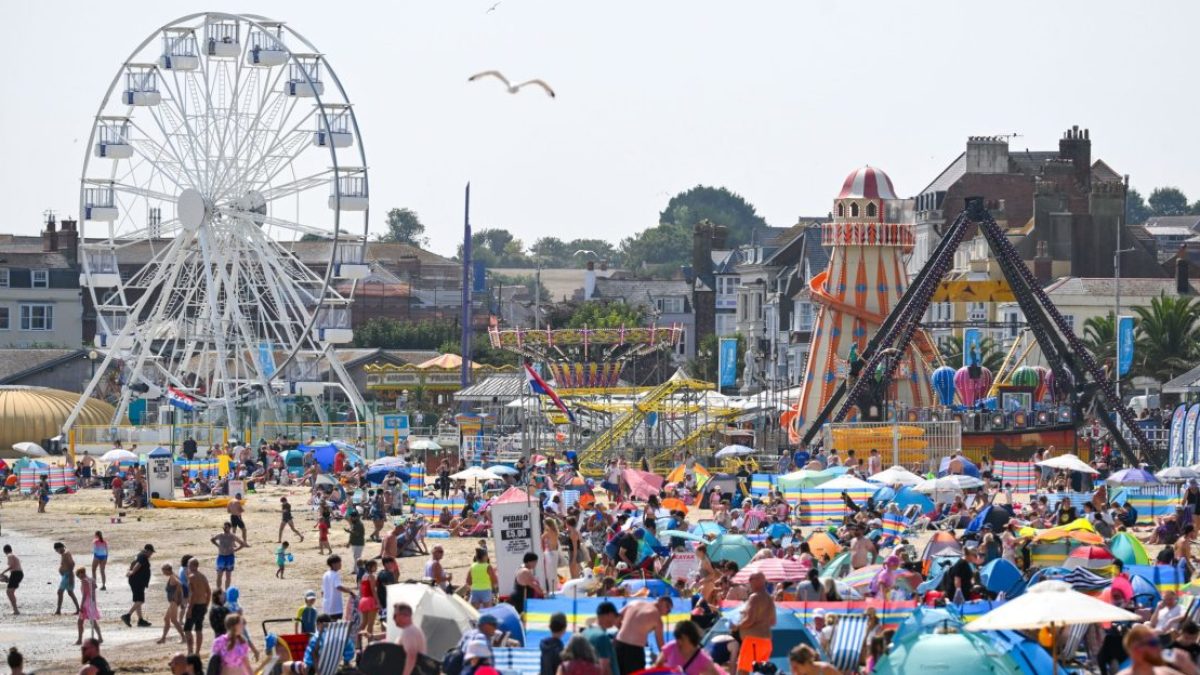As August draws to a close, this summer is on track to be the warmest ever recorded in the UK.
The hot weather has been welcomed by many and provided a boost for industries such as tourism and winemaking.
But successive heatwaves have also brought challenges for farmers and the environment. The ongoing drought has caused Britain’s canal network to shut down and some events have been cancelled due to extreme heat.
New FeatureIn ShortQuick Stories. Same trusted journalism.
Scientists have warned this weather represents the UK’s ‘new normal’.
Here’s how climate change is changing our summers:
The winnersTourism boom
It’s been a great year for UK tourism as the warm weather has encouraged Britons to stay at home and has also attracted visitors from Europe, as people look to avoid the extreme temperatures that are consistently being recorded across the Mediterranean.
VisitBritain forecasts that international tourists will spend £33.7bn in the UK this year, up from £32.5bn in 2024.
Meanwhile an analysis of travel data by Trainline, shared with The i Paper, shows that seaside towns have benefitted from a surge in visitors during this summer’s heatwaves.
Formby in Merseyside saw a 742 per cent increase in rail passenger arrivals during July’s heatwave compared to the same period in 2024.
Journeys to Barry Island in Wales increased by 279 per cent during the same period, while Whitby in Yorkshire experienced a 162 per cent increase.
 Barry Island has seen a spike in visitors during the heatwaves (Photo: Gray Freeman/Getty)
Barry Island has seen a spike in visitors during the heatwaves (Photo: Gray Freeman/Getty)
Rob Barber, Director of Women + Waves, a surf holiday operator based in Newquay, Cornwall, said this summer has been a “good season” for tourism. However, visitor numbers are still not reaching the levels recorded during the pandemic staycation boom, Barber said, partly due to households struggling with the cost of living.
“The weather has certainly helped,” Barber said. However, he is concerned about the longer term impact of climate change. Devon and Cornwall are in the midst of a marine heatwave, with sea temperatures 4°C above normal, which is having a huge impact on the local ecosystem.
Wine
The hot weather is likely to result in a bumper year for British wine, an industry that has been growing rapidly in recent years due to climate change.
Sam Lindo, a winemaker at Camel Valley in Cornwall, said 2025 has been “an excellent year for winemaking”.
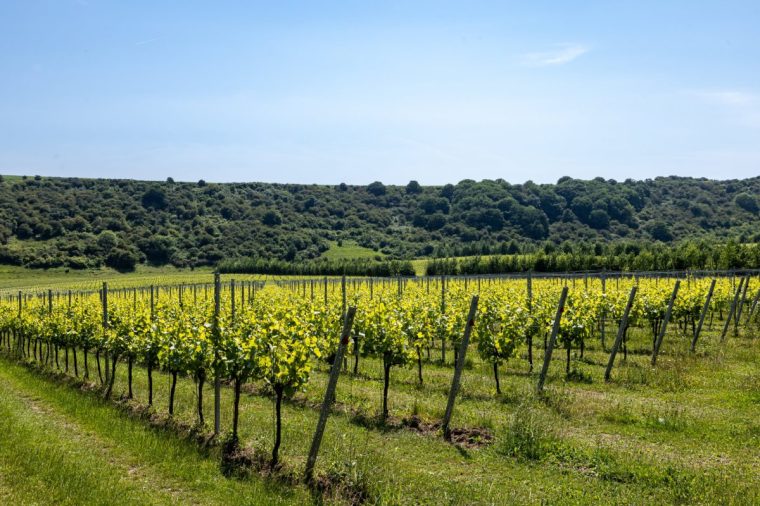 Grape vines in rural Sussex on a sunny day in June (Photo: Lemanieh Provider/Getty)
Grape vines in rural Sussex on a sunny day in June (Photo: Lemanieh Provider/Getty)
The weather means British wineries are branching out into more varieties of wine. British wine is typically associated with sparkling as cooler temperatures help grapes maintain acidity and freshness, but warmer temperatures allow grapes to ripen more fully and provide flavours suited for still wine.
“The recent dry weather has meant excellent ripening which will be great for still wine this year. It isn’t often we can ripen Chardonnay and Pinot Blanc to still wine levels,” Lindo said.
Retail
Soaring temperatures also provided a boost for retailers, with sales up 3.1 per cent year on year in June and 2.5 per cent in July, according to the British Retail Consortium.
Helen Dickinson, CEO at the trade body, said the hot weather increased sales of items such as electric fans, while food sales did well “thanks to warm weather and a packed sporting schedule”.
The warm weather led to a boost in sales for items including cider, strawberries and ice cream, according to analysis by market research firm NielsenIQ.
But the BRC also warned the boost in sales is likely to be only temporary and does not “touch the sides” of the rising costs facing retailers, including higher taxes and employment costs.
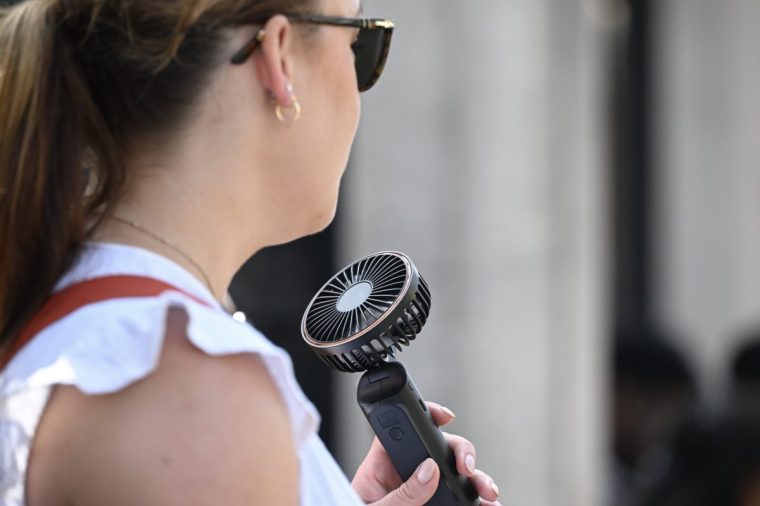 Sales of items such as electric fans has provided a boost for retailers (Photo: Rasid Necati Aslim/Anadolu/Getty)The losersEnvironmental damage
Sales of items such as electric fans has provided a boost for retailers (Photo: Rasid Necati Aslim/Anadolu/Getty)The losersEnvironmental damage
Not everyone has been cheering the hot summer in the UK. For many, this summer’s soaring temperatures have served as a sobering reminder that our climate is changing in a way the UK is not prepared for.
“The UK just does not have the infrastructure to cope with the heat – people swelter in their homes without air conditioning, railway tracks buckle in the heat and our reservoirs dry out,” said Mark Maslin, a professor of Earth system science at University College London.
England is in the midst of a drought that the Government has labelled a “nationally significant” incident. Hosepipe bans have been introduced across the country, some farmers have been banned from extracting water from the environment, and low water levels in rivers have resulted in at least 18 mass fish kills.
Wildfires have raged across parts of the country, including in the Cairngorms, Dartmoor and North York Moors National Parks, killing animals and destroying habitats.
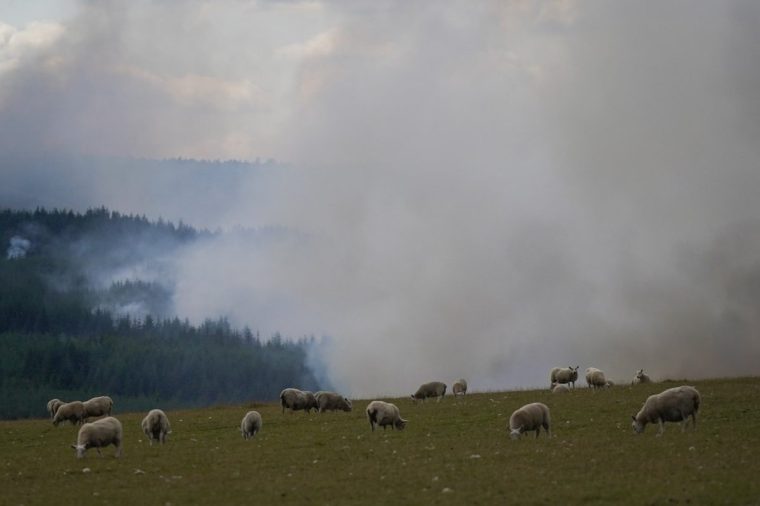 A wildfire has been spreading across North Yorks Moor National Park since 11 August (Photo: Ian Forsyth/Getty)Event cancellations
A wildfire has been spreading across North Yorks Moor National Park since 11 August (Photo: Ian Forsyth/Getty)Event cancellations
While many event organisers have celebrated the lack of rain this summer, the extreme heat has also led to cancellations, particularly of sporting events.
In July a series of running races, including the finale of the Trail Run World Series, had to be stopped mid-event due to extreme temperatures in Snowdonia.
Barry Hopkins, the head of RunEvents at Sports England, said race organisers are “rethinking the timing” of events as the UK experiences more extreme weather.
“So where you might in the past have had a marathon in the middle of July, if it’s going to be like 30°C, that’s probably not sensible,” he said.
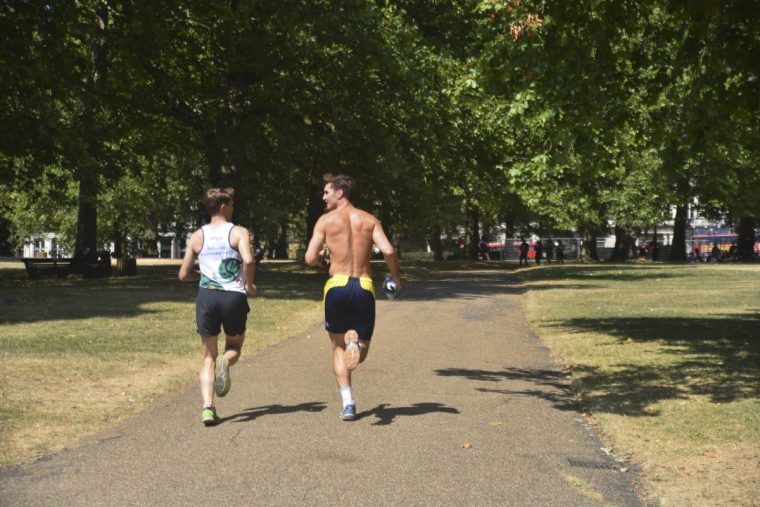 The hot weather has brought challenges for runners (Photo: Alberto Pezzali/NurPhoto/Getty)Canal shutdown
The hot weather has brought challenges for runners (Photo: Alberto Pezzali/NurPhoto/Getty)Canal shutdown
The drought has brought chaos to the canal network in England and Wales as large sections have been closed for navigation to protect water levels.
Boating holidays have been cancelled and some liveaboard boaters have gotten stuck hours away from their jobs or essential services.
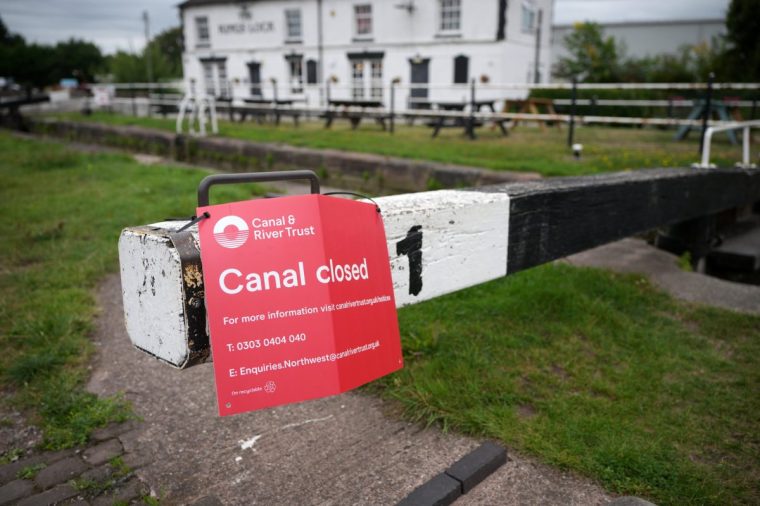 Parts of the canal network have been closed to protect water levels (Photo: Christopher Furlong/Getty)
Parts of the canal network have been closed to protect water levels (Photo: Christopher Furlong/Getty)
The closures have also impacted markets and festivals, such as the Banbury Canal Festival that is due to take place in the Oxfordshire town next month.
Sam Worrall organises a floating market as part of the festival, but has had to cancel it as the traders are not able to get there.
“I had 18 traders booked in this year and noone can get here. Effectively Banbury is now cut off from the whole network,” said Worrall.
